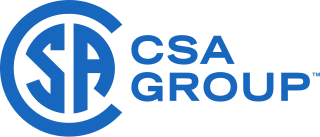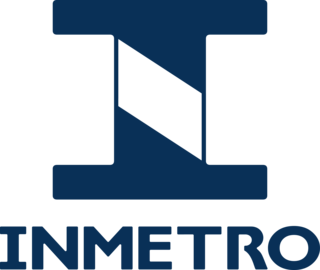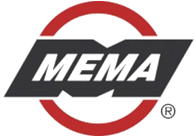Conformance testing — an element of conformity assessment, and also known as compliance testing, or type testing — is testing or other activities that determine whether a process, product, or service complies with the requirements of a specification, technical standard, contract, or regulation. Testing is often either logical testing or physical testing. The test procedures may involve other criteria from mathematical testing or chemical testing. Beyond simple conformance, other requirements for efficiency, interoperability, or compliance may apply. Conformance testing may be undertaken by the producer of the product or service being assessed, by a user, or by an accredited independent organization, which can sometimes be the author of the standard being used. When testing is accompanied by certification, the products or services may then be advertised as being certified in compliance with the referred technical standard. Manufacturers and suppliers of products and services rely on such certification including listing on the certification body's website, to assure quality to the end user and that competing suppliers are on the same level.

Current good manufacturing practices (cGMP) are those conforming to the guidelines recommended by relevant agencies. Those agencies control the authorization and licensing of the manufacture and sale of food and beverages, cosmetics, pharmaceutical products, dietary supplements, and medical devices. These guidelines provide minimum requirements that a manufacturer must meet to assure that their products are consistently high in quality, from batch to batch, for their intended use.

The CSA Group is a standards organization which develops standards in 57 areas. CSA publishes standards in print and electronic form, and provides training and advisory services. CSA is composed of representatives from industry, government, and consumer groups.
Advanced product quality planning (APQP) is a framework of procedures and techniques used to develop products in industry, particularly in the automotive industry. It differs from Six Sigma in that the goal of Six Sigma is to reduce variation, but has similarities to Design for Six Sigma (DFSS).
Welder certification, is a process which examines and documents a welder's capability to create welds of acceptable quality following a well defined welding procedure.
A measurement system analysis (MSA) is a thorough assessment of a measurement process, and typically includes a specially designed experiment that seeks to identify the components of variation in that measurement process. Just as processes that produce a product may vary, the process of obtaining measurements and data may also have variation and produce incorrect results. A measurement systems analysis evaluates the test method, measuring instruments, and the entire process of obtaining measurements to ensure the integrity of data used for analysis and to understand the implications of measurement error for decisions made about a product or process. Proper measurement system analysis is critical for producing a consistent product in manufacturing and when left uncontrolled can result in a drift of key parameters and unusable final products. MSA is also an important element of Six Sigma methodology and of other quality management systems. MSA analyzes the collection of equipment, operations, procedures, software and personnel that affects the assignment of a number to a measurement characteristic.
IEC 61508 is an international standard published by the International Electrotechnical Commission (IEC) consisting of methods on how to apply, design, deploy and maintain automatic protection systems called safety-related systems. It is titled Functional Safety of Electrical/Electronic/Programmable Electronic Safety-related Systems.
AS9100 is a widely adopted and standardized quality management system for the aerospace industry. It was released in October, 1999, by the Society of Automotive Engineers and the European Association of Aerospace Industries.
Clean Fuels Alliance America (CFAA), formerly known as the National Biodiesel Board, is an American commercial trade association representing the biodiesel industry as the unifying and coordinating body for research and development in the United States. Its mission is to advance the interests of members by creating sustainable biodiesel industry growth. CFAA works to remove barriers to the industry and educate the public about biodiesel. It offers regulatory, technical, communications, education, and petroleum outreach programs.
Production Part Approval Process (PPAP) is used in the Aerospace or automotive supply chain for establishing confidence in suppliers and their production processes. Actual measurements are taken from the parts produced and are used to complete the various test sheets of PPAP.
"All customer engineering design record and specification requirements are properly understood by the supplier and that the process has the potential to produce product consistently meeting these requirements during an actual production run at the quoted production rate." Version 4, 1 March 2006
Mobile-device testing functions to assure the quality of mobile devices, like mobile phones, PDAs, etc. It is conducted on both hardware and software, and from the view of different procedures, the testing comprises R&D testing, factory testing and certificate testing. It involves a set of activities from monitoring and trouble shooting mobile application, content and services on real handsets. It includes verification and validation of hardware devices and software applications. Test must be conducted with multiple operating system versions, hardware configurations, device types, network capabilities, and notably with the Android operating system, with various hardware vendor interface layers.

A Welding Procedure Specification (WPS) is a formal document describing welding procedures. It is an internal document used by welding companies to instruct welders on how to achieve quality production welds that meet all relevant code requirements. Each company typically develops their own WPS for each material alloy and for each welding type used. Specific codes and/or engineering societies are often the driving force behind the development of a company's WPS. A WPS is supported by a Procedure Qualification Record, a formal record of a test weld performed and rigorously tested to ensure that the procedure will produce a good weld. Individual welders are certified with a qualification test documented in a Welder Qualification Test Record (WQTR) that shows they have the understanding and demonstrated ability to work within the specified WPS.
A specification often refers to a set of documented requirements to be satisfied by a material, design, product, or service. A specification is often a type of technical standard.
Nationally Recognized Testing Laboratory is the term used by the United States Occupational Safety and Health Administration to identify third-party organizations that have the necessary qualifications to perform safety testing and certification of products covered within OSHA and each organization's scopes. The testing and certification are conducted in accordance with U.S. consensus-based product safety test standards developed or issued by U.S. standards organizations
The Automotive Industry Action Group (AIAG) is a not-for-profit association founded in 1982 and based in Southfield, Michigan. It was originally created to develop recommendations and a framework for the improvement of quality in the North American automotive industry. The association's areas of interest have expanded to include product quality standards, bar code and RFID standards, materials management, EDI, returnable containers and packaging systems, and regulatory and customs issues.
The International Electrical Testing Association (NETA), formerly the National Electrical Testing Association, is a trade association dedicated to improving electrical testing standards in the United States and sharing those standards internationally. NETA is accredited by the American National Standards Institute (ANSI) as a standards developing entity. It is guided by an active Board of Directors consisting of professionals within the electrical testing industry. The Board meets quarterly for official meetings. Board members also participate on various NETA committees, such as the Standards Review Council, Certification Exam, Membership, Finance, Association Development and Strategy, Promotions and Marketing, Nominations and Mission Based Programs.

The National Institute of Metrology, Standardization and Industrial Quality (INMETRO) is a Brazilian federal autarchy, linked to MDIC, the Ministry of Development, Industry and Foreign Trade.

The Motor & Equipment Manufacturers Association (MEMA) was founded in 1904. MEMA represents more than 1,000 companies that manufacture motor vehicle components and systems for the original equipment and aftermarket segments of the light vehicle and heavy-duty motor vehicle manufacturing industry in the United States. Motor vehicle component manufacturers are the largest employer of manufacturing jobs in the U.S., contributing nearly 3 percent of the U.S. gross domestic product. Motor vehicle parts suppliers generate a total direct and indirect employment impact of 4.26 million jobs, up nearly 18 percent since 2012.
Avnu Alliance is a consortium of member companies working together to create an interoperable ecosystem of low-latency, time-synchronized, highly reliable networking devices using the IEEE open standard, Time-Sensitive Networking (TSN) and its Pro AV networking protocol, Milan. Avnu Alliance creates comprehensive certification programs to ensure interoperability of network devices. In the Professional Audio Video (AV) industry, Alliance member companies worked together to develop Milan: a standards-based, user-driven deterministic network protocol for professional media, that through certification, assures devices will work together at new levels of convenience, reliability, and functionality. Milan™ is a standards-based deterministic network protocol for real time media. Avnu Members may use the Avnu-certified or Milan-certified logo on devices that pass the conformance tests from Avnu. Not every device based on AVB or TSN is submitted for certification to the Avnu Alliance. The lack of the Avnu logo does not necessarily imply a device is incompatible with other Avnu-certified devices. The Alliance, in conjunction with other complimentary standards bodies and alliances, provides a united network foundation for use in professional AV, automotive, industrial control and consumer segments.




